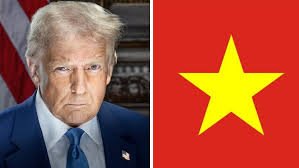Vietnam’s economy is moving into a new phase where foreign direct investment is no longer defined by low-cost labor but by technology, sustainability, and innovation. For decades, the country relied on its affordability to attract global manufacturers. Today, however, its leaders and industry experts argue that Vietnam’s real value lies in higher-quality investments that bring long-term growth, research capabilities, and skilled employment.
Vietnam’s Shift From Low-Cost Manufacturing to High-Value Investment
In the past, foreign companies were drawn to Vietnam because of its inexpensive workforce and favorable location near major shipping routes. That model worked well to position the country as a strong player in textiles, footwear, and basic manufacturing. Yet, as wages rise and global supply chains become more complex, Vietnam is now deliberately shifting toward high-value sectors.

Government officials and industry analysts emphasize that the nation is not just looking for any type of FDI. Instead, it seeks projects that provide innovation, advanced technologies, and green growth. At the Global Business Forum 2025 in Ho Chi Minh City, participants highlighted how this transition is essential to sustaining Vietnam’s long-term economic resilience.
Record FDI Growth Despite Global Economic Slowdowns
While many economies struggled with reduced investment in recent years, Vietnam has bucked the global trend. In 2024, the country recorded $25.35 billion in realized FDI, its highest in six years, even as worldwide FDI flows dropped by over 10%. This achievement underscored Vietnam’s growing reputation as a stable and attractive destination for global investors.
In the first half of 2025, inflows reached $21.5 billion, an increase of more than 30% compared to the previous year. These investments did not only come from traditional manufacturing but also included major commitments in real estate, digital transformation, renewable energy, and research and development. Singapore, Japan, and China emerged as top contributors, with firms focusing on long-term, strategic projects rather than quick, profit-driven ventures.
Strategic Focus on Technology, Semiconductors, and Green Energy
Vietnam has identified key industries that will form the backbone of its next wave of development. Among them, the semiconductor sector stands out. With global companies like Amkor and Intel expanding their presence, the country aims to secure a larger share of the chip design, packaging, and testing market. By 2032, experts predict that Vietnam could hold nearly 9% of the global market for semiconductor packaging, up from just 1% in 2022.

At the same time, partnerships with companies such as NVIDIA highlight Vietnam’s ambition in artificial intelligence and data-driven innovation. New projects include AI research centers and digital infrastructure designed to prepare the nation for future technological revolutions.
Beyond technology, renewable energy is also gaining momentum. As climate challenges intensify, Vietnam is attracting projects in wind, solar, and clean energy storage. These investments align with the country’s commitment to sustainable growth while also appealing to investors who prioritize environmental responsibility.
Building a Sustainable Reputation on the Global Stage
Vietnam’s emerging reputation is not just about attracting money but about building trust. Investors see the country as a reliable partner with political stability, strong trade agreements, and a growing consumer market. Multinational corporations recognize Vietnam’s role as part of a regional supply chain that balances China’s dominance while offering stability and competitive advantages.
This shift is also supported by Vietnam’s integration into major global trade agreements such as the Comprehensive and Progressive Agreement for Trans-Pacific Partnership and the EU-Vietnam Free Trade Agreement . These partnerships allow investors to use Vietnam as a hub for reaching larger markets with fewer trade barriers


 Vietnam’s 80th National Day Parade Gains Global Attention
Vietnam’s 80th National Day Parade Gains Global Attention  Apple Shifts Device Production to India and Vietnam
Apple Shifts Device Production to India and Vietnam  Vietnam Cuts Tariffs on U.S
Vietnam Cuts Tariffs on U.S